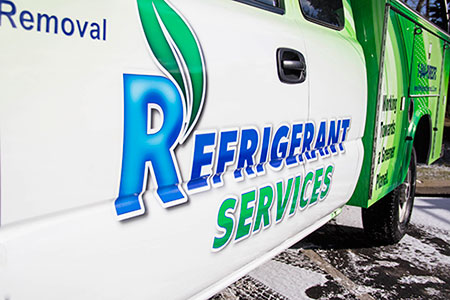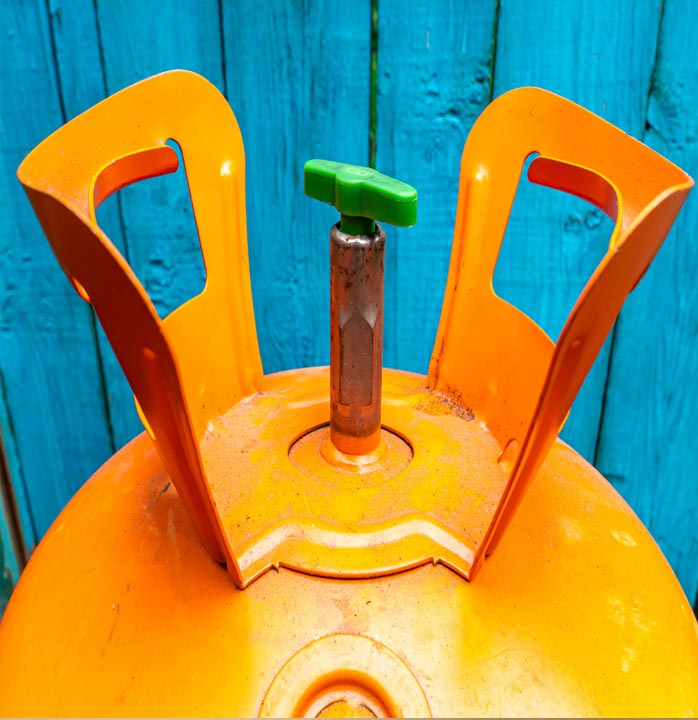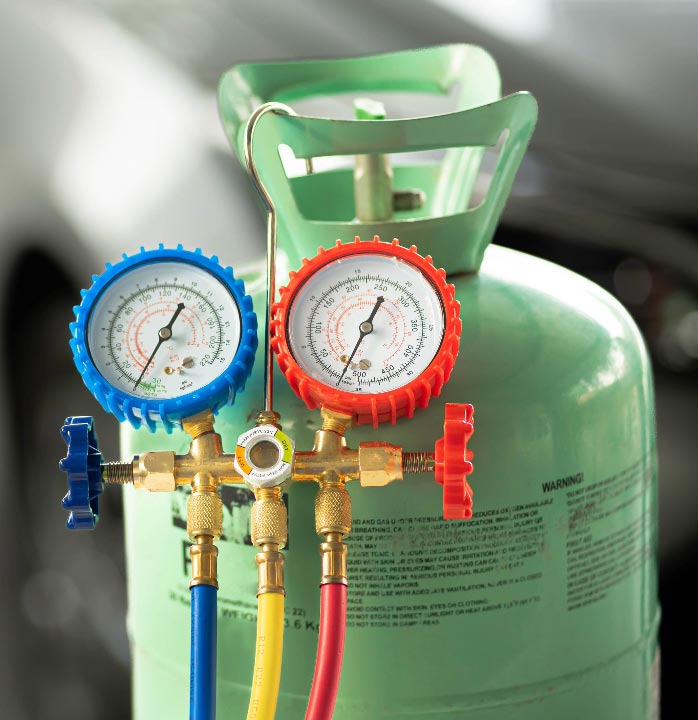This summer has posted record-holding temperatures around the globe and most of us have chosen to crank up the air conditioner and stay indoors. Cold drinks are a good accompaniment to these daily ‘staycations’ and your refrigerator is stocked with fruit juices, milk shakes, ice cold beer, and other cool beverages. While this is a good way to beat the heat, this is also a sure way to overuse your air conditioners and refrigerators. But before you get into any type of maintenance work yourself, know that there are many health hazards involved in dealing with refrigerants.
What are the dangers in handling refrigerants?
Refrigerants are substances or mixtures, usually in the form of a fluid, that are used to absorb or extract heat in order to provide a cooling effect in refrigerators and air conditioners. They are an integral part of the refrigeration cycle because of their ability to remove heat from one area and transfer it to another. While these compounds are a breakthrough for the industry, they also pose serious dangers to health and the environment if not handled professionally.
#1 – Frost bite and sight impairment
Most refrigerants have very low boiling points and this increases the chances of causing frost bite and sight impairment when handled without professional training and proper safety equipment. The most common cases of improper handling of refrigerants have led to individuals complaining about irritation around their eyes, which sometimes spreads down to the nose and throat.
#2 – Skin irritation and respiratory problems
Some refrigerants have slightly higher boiling points and they can cause mild up to severe skin irritation and respiratory problems. Fluorocarbon refrigerants are considered toxic especially in high concentrations. They are known to have an anesthetic or numbing effect, which causes difficulty in breathing or shortness of breath. In severe cases, they can cause an irregular pulse, tremors, convulsions, and even death. Common refrigerants also freeze the skin in an instant, causing frostbite or other forms of skin rashes and wounds that will make it difficult for the person to carry out normal day-to-day functions.
#3 – Refrigerants are highly flammable
Refrigerants that do not contain the toxic hydrofluorocarbons (HFC) contain other potentially hazardous substances such as ammonia and carbon dioxide. Ammonia is also highly toxic and has medium flammability while carbon dioxide requires working at higher pressures than hydrofluorocarbons, which increases the risk involved in mishandling.
#4 – Hazards to the environment
Most air conditioners, especially the older models, use the R-22 or Freon coolant. Newer air conditioners use the R410-A, which is an environmentally safer option, but one that needs to be handled by a professional at all times.
These refrigerant types are chlorofluorocarbons (CFC) and are considered controlled chemicals by the Environmental Protection Agency. There are provisions that require proper disposal of these substances. There was a big environmental movement against CFCs in the 1970s because it was suggested that Freon and CFCs were causing damage to the earth’s ozone layer. It was said that these chemicals were depleting the ozone, the earth’s natural protection against ultraviolet radiation. This has then increased the risk of skin cancer and has threatened animal life. Since then, Freon has been banned in the use of aerosol sprays in the United States, and most developed nations have ended their production of Freon and CFCs by the end of the 1990s.
Call the professionals.
To avoid unnecessary complications, always hire a professional to deal with refrigerants in your air conditioner and refrigerator. The State requires certain licenses in the handling and disposal of these substances so it is best to get the help of someone who has undergone training and authorization in the repair, replacement and disposal of refrigerants.
Remember that anyone who handles fluorocarbon refrigerants without a required license is committing a legal offense. To avoid unnecessary penalties, contact Refrigerant Services at 844-PURECFC (787-3232) or use our on-line contact form and one of our friendly staff will be in touch within two business days. We are a licensed refrigerant handler with the proper skills and training and approved safety equipment. Leave the work to us!





